





There are multiple stages of the life cycle of a frog including frog eggs, tadpole, tadpole with legs, froglet or young frog and adult frog.
Frogs are fascinating creatures that live both on land and in water. So, frogs are amphibians. They undergo a remarkable transformation during their life cycle, from a tiny egg to a fully grown frog. Let’s examine the frog life cycle more closely.
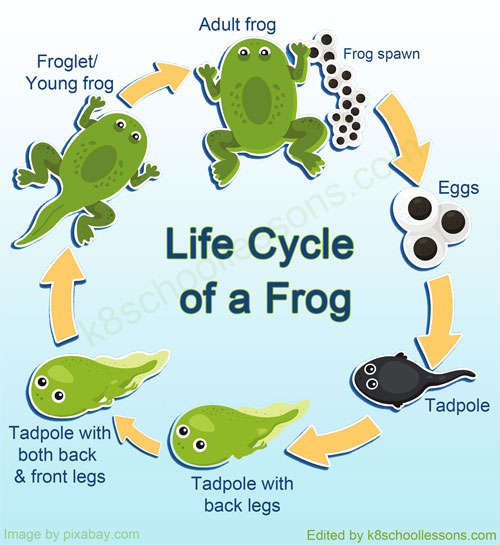 The Life Cycle of a Frog
The Life Cycle of a Frog
As mentioned above, the life cycle of a frog basically consists of five stages.
The first stage in the frog life cycle is the egg stage. Frog eggs are also called frog spawn. Female frogs lay their eggs in water or on moist land. The eggs are covered in a jelly-like substance to protect them. The jelly also keeps the eggs from drying out.
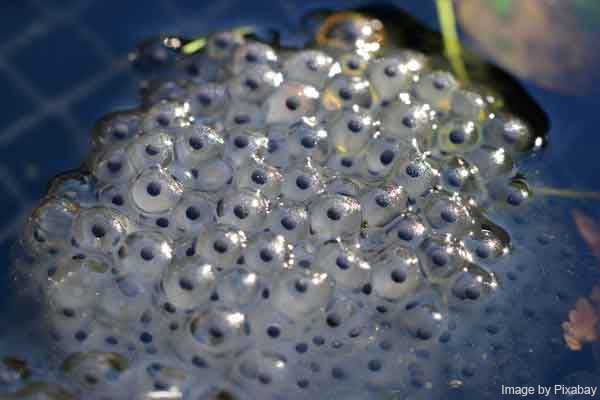 Frog Eggs/ Frog Spawn
Frog Eggs/ Frog Spawn
Tadpoles are the second stage of a frog’s life cycle. The eggs hatch after a few days, and tiny tadpoles emerge. They have gills to breathe underwater and swim like fish in the water using their tails.
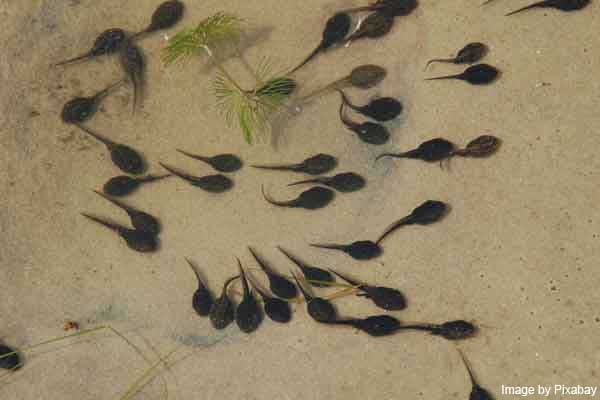 Tadpoles swim like fish when they don’t have legs.
Tadpoles swim like fish when they don’t have legs.
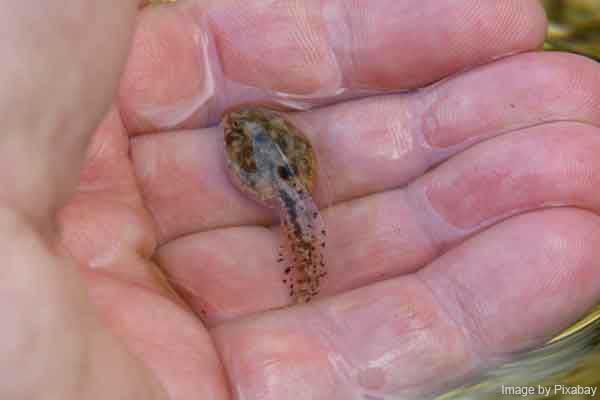 Let’s take a closer look at a tadpole without legs.
Let’s take a closer look at a tadpole without legs.
Tadpoles with legs basically undergo two stages.
In this stage the tadpole’s body changes its shape. As they grow, they shed their skin and develop back legs and jaws. They eat algae and other small water creatures.
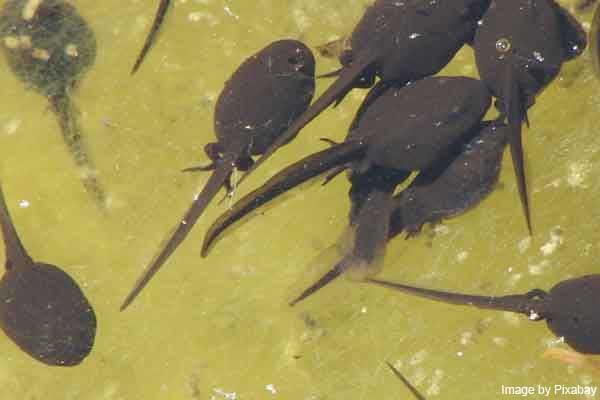 Tadpoles with back legs
Tadpoles with back legs
Then the tadpoles develop front legs and lungs so that they can jump and breathe on land.
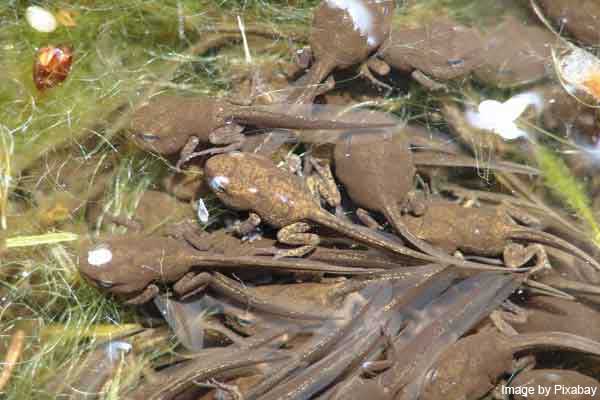 Tadpoles with both back and front legs
Tadpoles with both back and front legs
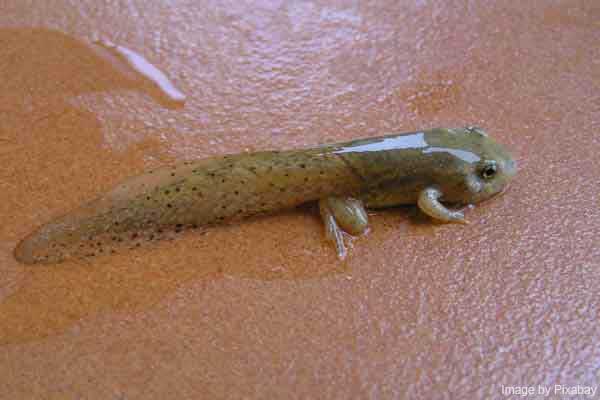 A tadpole with both back and front legs
A tadpole with both back and front legs
Once tadpoles fully develop their legs, they become froglets. A froglet is a young frog. They have a tail, but it gets smaller as they grow. Froglets are capable of respiration through both their skin and lungs. They also start to eat insects and other small creatures.
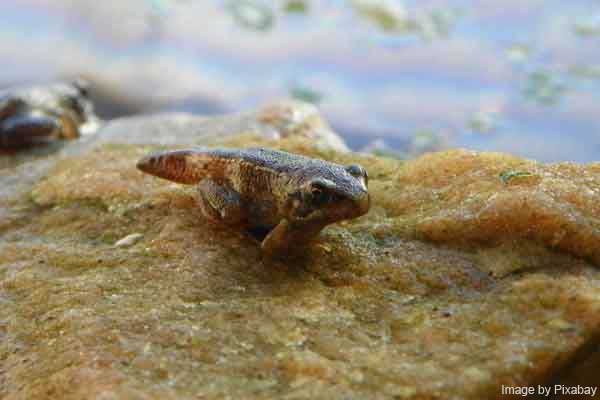 A froglet with the tail
A froglet with the tail
As they get older, they lose their tail and become fully grown frogs.
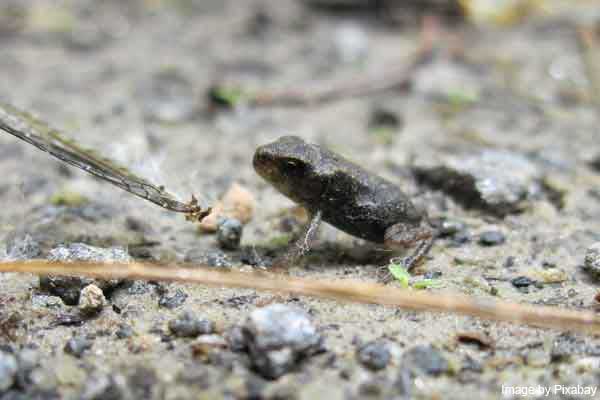 A froglet without the tail
A froglet without the tail
The final stage of a frog’s life cycle is the adult stage. Adult frogs live both on land and in water. They breathe air through their lungs and have moist skin that helps them absorb oxygen. Adult frogs eat insects, spiders, and other small creatures.
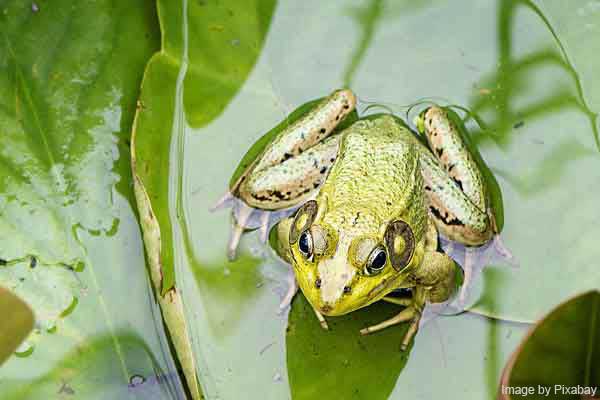 Adult frog
Adult frog
They also mate and lay eggs, starting the life cycle all over again.
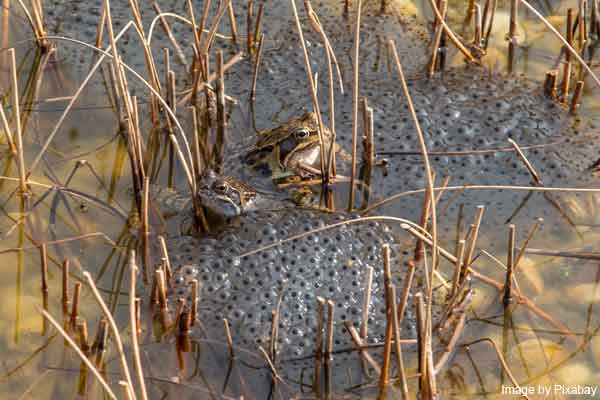 Adult frogs mate and lay eggs.
Adult frogs mate and lay eggs.
In conclusion, the life cycle of a frog is a captivating process that takes the frog from a tiny egg to a fully grown frog. Each stage of the life cycle is important and prepares the frog for its adult life. By understanding the frog life cycle, we can appreciate the amazing transformation that takes place in nature.
Now take the Quiz on The Life Cycle of a Frog